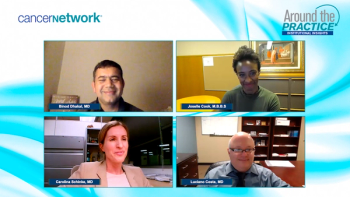
The panel closes by sharing final thoughts in the management of relapsed/refractory multiple myeloma, with a shared sense of optimism for advancements in treatment.

Your AI-Trained Oncology Knowledge Connection!

UAMS Myeloma Center

The panel closes by sharing final thoughts in the management of relapsed/refractory multiple myeloma, with a shared sense of optimism for advancements in treatment.

Key opinion leaders review the management of CAR-T therapy side effects in patients with relapsed/refractory multiple myeloma, including cytokine release syndrome and neurotoxicity, and emphasize the importance of early supervision and known toxicity timing.

Experts discuss the strategies and considerations for bridging therapy and the management of patients with relapsed/refractory multiple myeloma receiving CAR T-cell therapy.
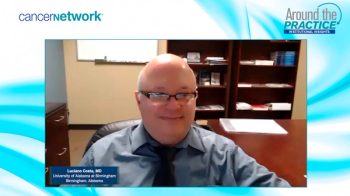
Luciano Costa, MD, discusses the effectiveness and challenges of CAR-T therapy ciltacabtagene autoleucel for patients with multiple myeloma, emphasizing the response rates and duration and the advantages in early lines of treatment.
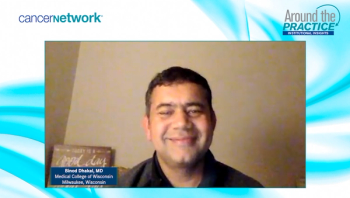
Dr Dhakal outlines the FDA-approved CAR T-cell therapy products for patients with multiple myeloma who have undergone at least four prior lines of treatment, emphasizing a focus on individualized decision-making when selecting patients for CAR-T.
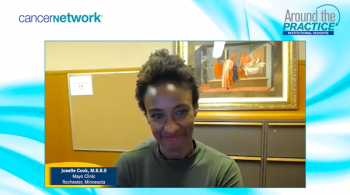
Joselle Cook, M.B.B.S., presents the case of a 62-year-old woman with high-risk multiple myeloma to the panel for discussion.

Joselle Cook, M.B.B.S., explains that she believes that elderly patients with relapsed/refractory multiple myeloma can still use bispecific therapies, though more objective data on frailty is needed.

Drs Costa, Dhakal, and Cook discuss managing the unique toxicities of bispecific antibodies in patients with relapsed/refractory multiple myeloma such as infections requiring prophylaxis and supportive care, and quality-of-life complaints like taste changes and skin issues.

Joselle Cook, M.B.B.S., and Luciano Costa, MD, note promising trials investigating combination bispecific antibody therapies for patients with relapsed/refractory multiple myeloma.

Drs Luciano Costa and Binod Dhakal discuss combining bispecific antibodies with gamma secretase inhibitors for the treatment of relapsed/refractory multiple myeloma, but trials show limited benefit and added toxicity; more promising are combinations with immunomodulators like isatuximab.

Joselle Cook, M.B.B.S., discusses the RedirecTT-1 trial combining teclistamab and talquetamab for patients with relapsed/refractory multiple myeloma, noting high response rates even in high-risk myeloma but concerns about long-term resistance.

Dr Binod Dhakal discusses response rates and toxicities seen with recently approved bispecific antibodies talquetamab in patients with heavily pretreated multiple myeloma, noting high response rates even after CAR-T, but also unique side effects.

Dr Luciano Costa discusses treatment options for patients with multiple myeloma with early vs late relapse, noting that those with early aggressive relapse have limited options and often rapidly exhaust available therapies, emphasizing the need for newer agents like bispecific antibodies.

Binod Dhakal, MD, presents the case of a young man with aggressive relapsed multiple myeloma to the panel for discussion.
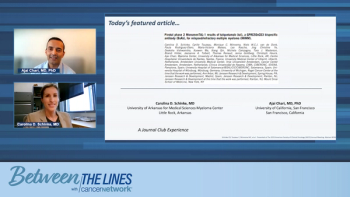
In the context of other clinical trials for patients with relapsed/refractory multiple myeloma, Ajai Chari, MD, and Carolina Schinke, MD, review data from TRiMM-2.

Expert perspectives on the real-world use of combination teclistamab and talquetamab in patients with relapsed/refractory multiple myeloma.

Centering discussion on RedirecTT-1, expert hematologist-oncologists consider safety and efficacy data with the combination of teclistamab and talquetamab in patients with relapsed/refractory multiple myeloma.

Shared perspective on available novel therapies in relapsed/refractory multiple myeloma and how best to sequence these agents.

Expert hematologist-oncologists identify long-term data from MonumenTAL-1 regarding infection rates in patients with relapsed/refractory multiple myeloma.

Following their review of data from MonumenTAL-1, Ajai Chari, MD, and Carolina Schinke, MD, share practical considerations for real-world use of talquetamab in relapsed/refractory multiple myeloma.

Focused discussion on the safety and efficacy data from MonumenTAL-1, which utilized talquetamab monotherapy in patients with relapsed/refractory multiple myeloma.

Following a brief review of the relapsed/refractory multiple myeloma treatment landscape, Carolina Schinke, MD, provides an overview of the MonumenTAL-1 study design.
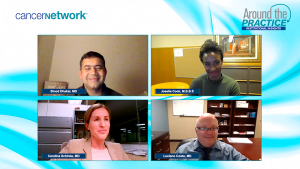
Published: November 16th 2023 | Updated:
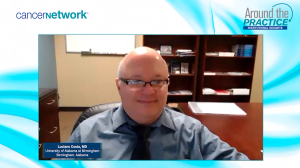
Published: December 7th 2023 | Updated:

Published: November 16th 2023 | Updated:
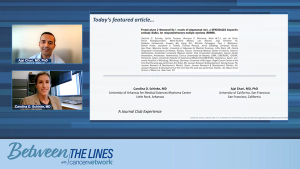
Published: July 13th 2023 | Updated:
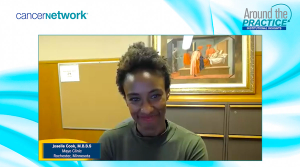
Published: November 9th 2023 | Updated:

Published: July 20th 2023 | Updated: